Explore authentic Japanese onsen in the heart of Bangkok: A must-visit guide
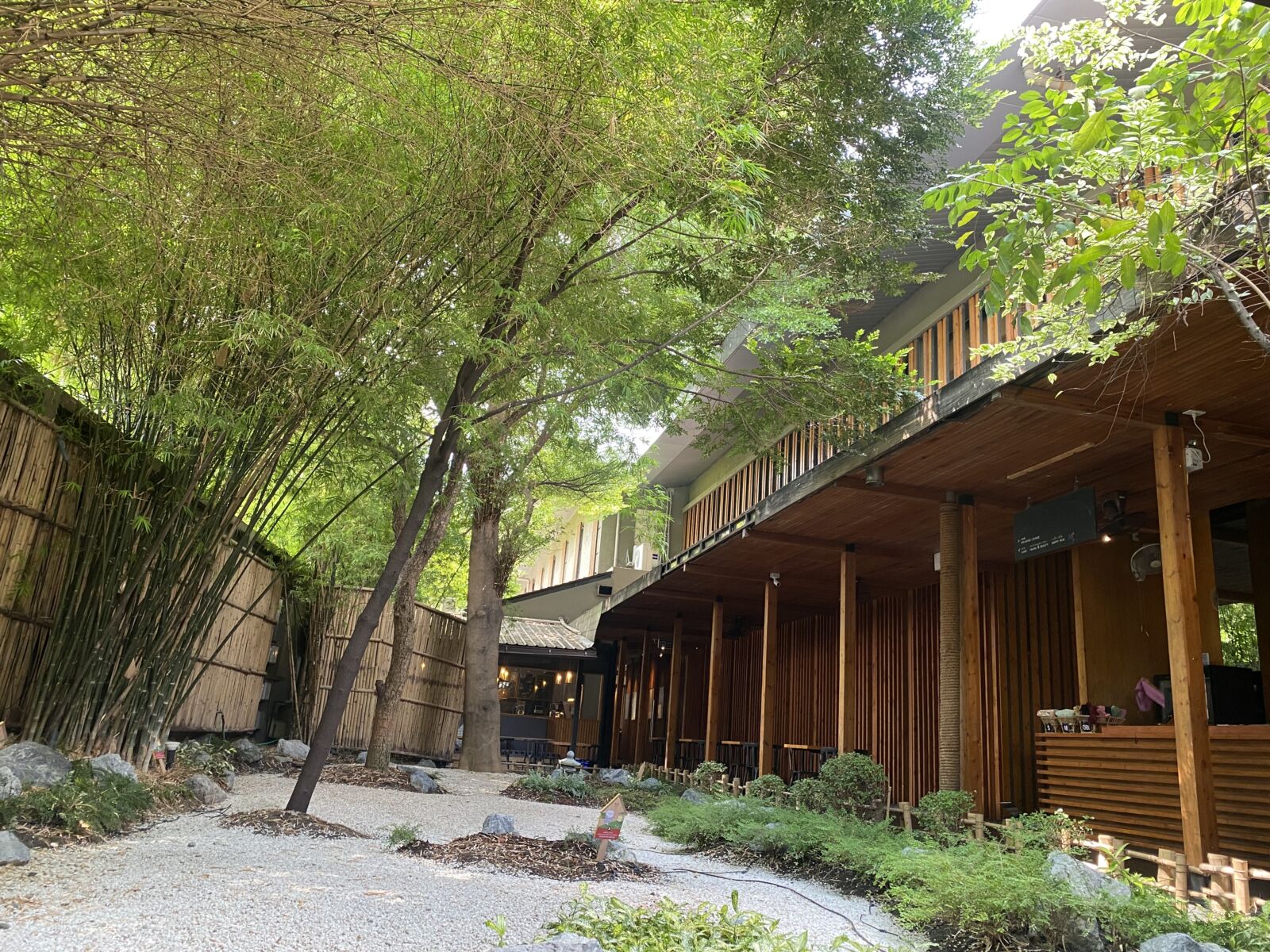
Whether you’re a Bangkokker or a tourist, you must be familiar with the popularity of wellness services in Thailand. Known as “the land of smiles,” it’s no surprise that massage parlours and spas are popping up everywhere in Bangkok and all over Thailand. One of the latest hype for spa aficionados appeared to be “onsen.” This is not a native Thai spa treatment but a traditional bathing culture brought in from Japan.
What is an Onsen?
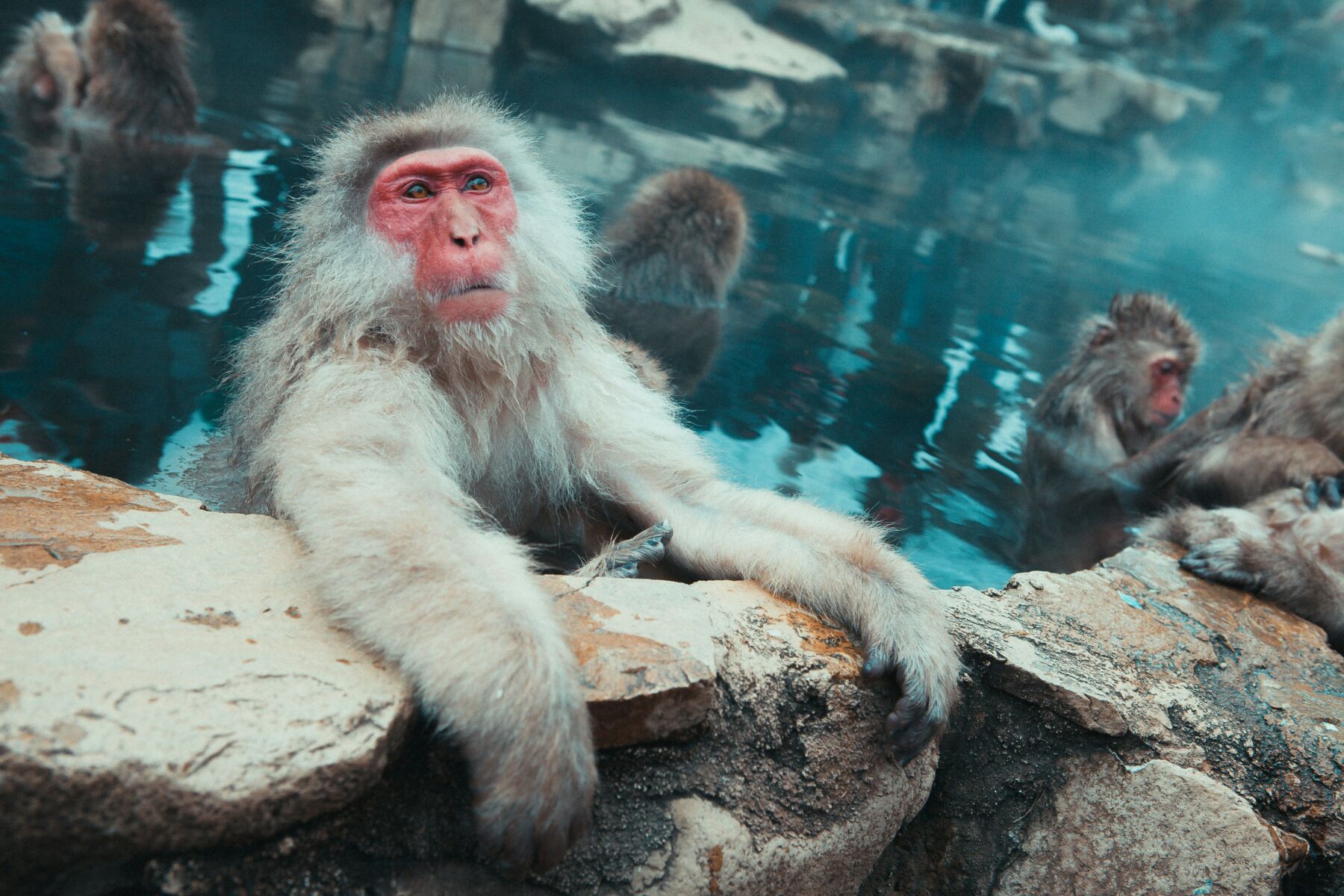
Onsen means hot spring in Japan. You might be asking, why are hot springs becoming popular in a tropical country like Thailand?
Japanese hot springs offer therapeutic benefits, including muscle relaxation, improvement in blood circulation, stress and fatigue relief. The mineral-rich waters also help nourish and rejuvenate the skin. Aside from the health and aesthetic benefits, the popularity can be explained by the well-integrated Japanese culture in Thailand. Due to economic and historical ties, Japanese cuisines, media (such as anime), fashion and technology are pretty influential in Thailand. For instance, dining trends and establishments such as “omakase” or “izakayas” are springing up in central Bangkok.
Authentic onsen experience in Bangkok
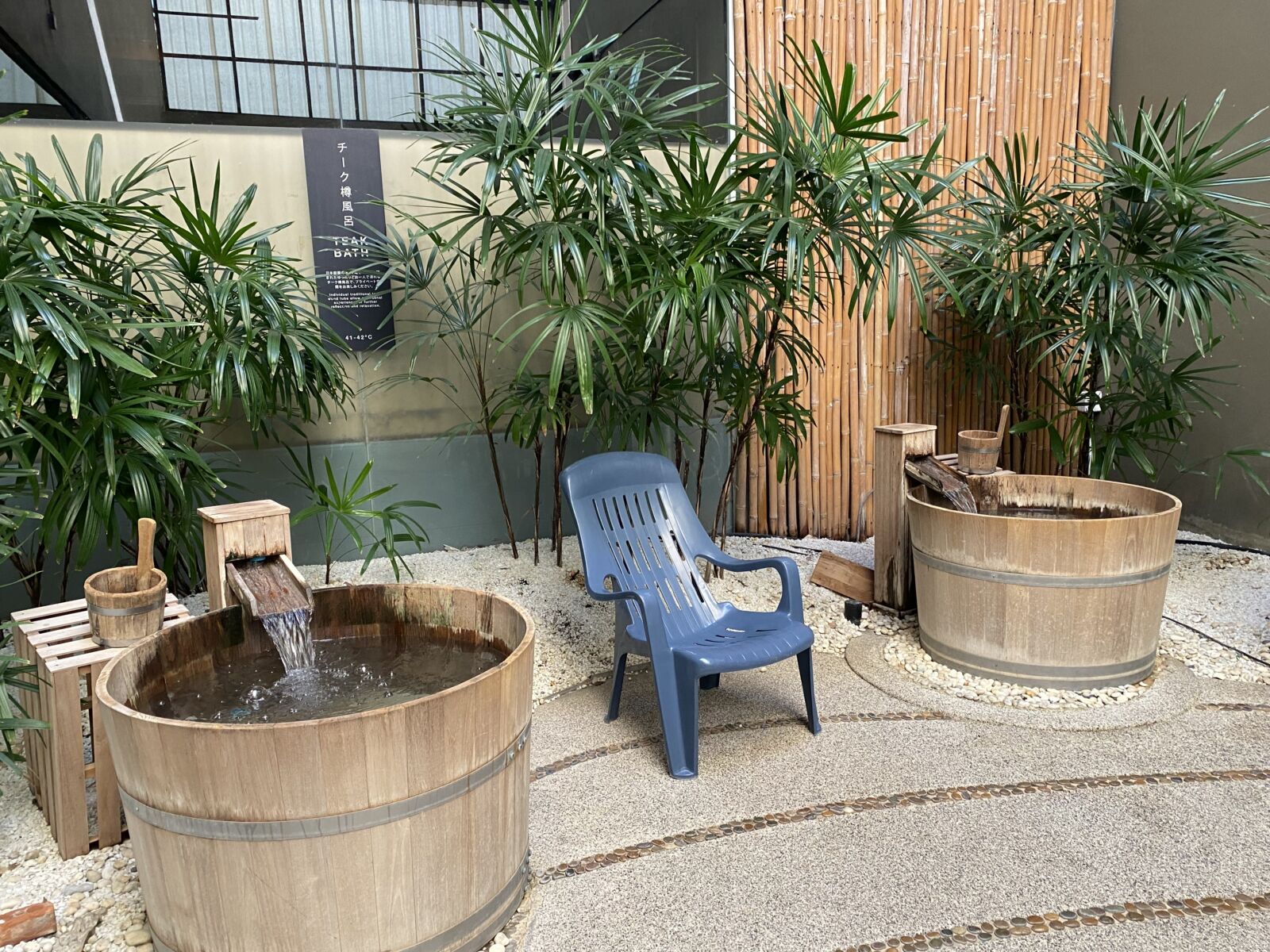
The good news is that you don’t have to travel 4000 km to Japan to experience the popular bathing culture—you can experience it right in the centre of bustling Bangkok.
One of the best onsen spas in Bangkok is Yunomori Onsen. With two branches in Sukhumvit 24 and Sathorn 10, Yunomori stands out as a slice of Japan with its bamboo setting—different from any other spa in the city. What’s unique to Yunomori is that it mixes the classic Japanese onsen with traditional Thai massage, creating an exceptional spa experience you won’t find in Japan or Thailand. It’s a hit with both Thai and Japanese locals in Thailand!
A day at Yunomori Onsen
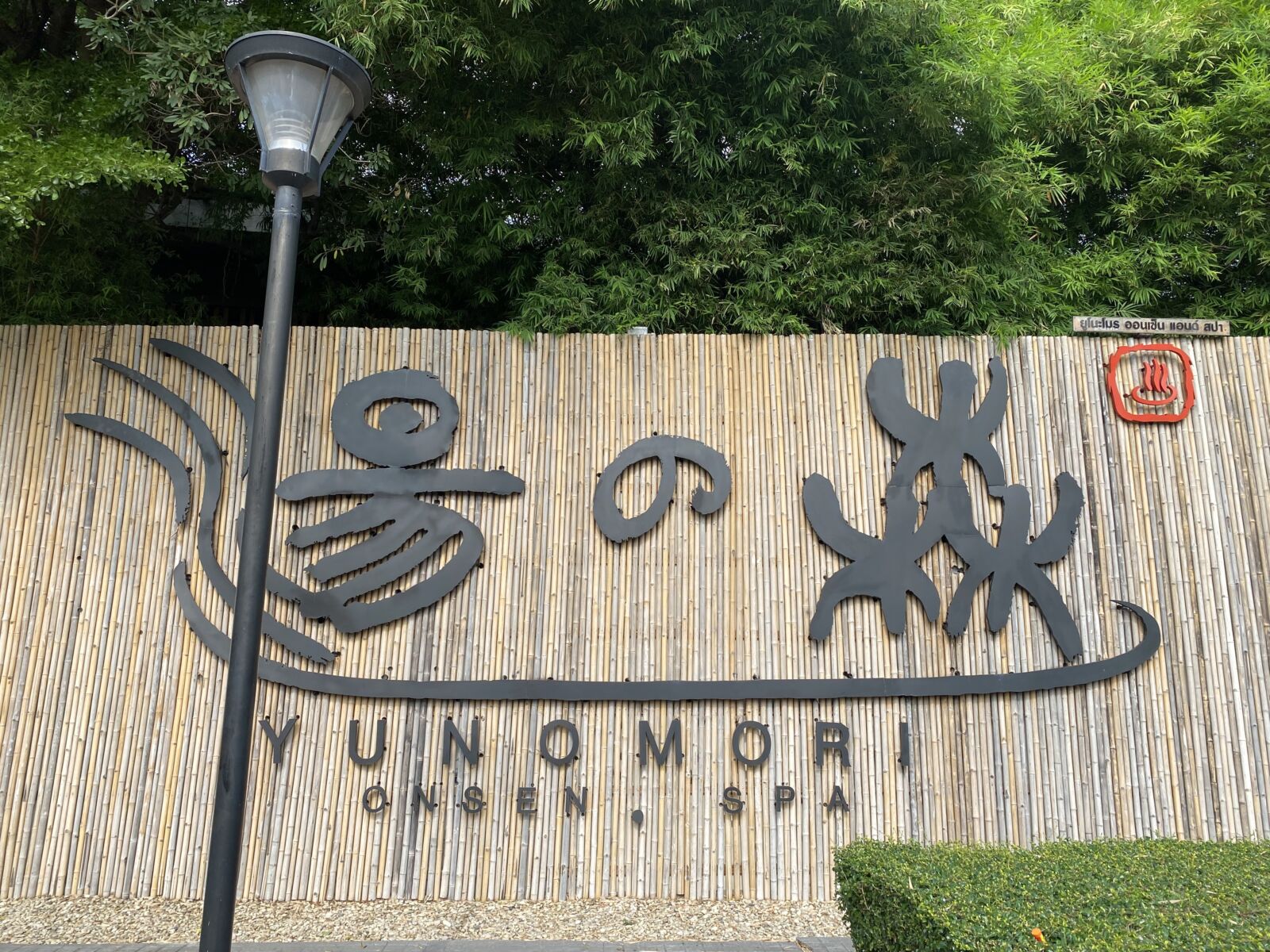
Stepping into Yunomori Onsen feels like teleporting straight to Japan, and it starts with changing into traditional bamboo sandals at the entrance. Next, you wear the traditional Japanese yukata, a breezy cotton kimono perfect for the warm Bangkok weather. But here’s the fun part – you get to pick your yukata pattern and obi (sash) colour! Not sure how to wear it? No worries! There’s a handy yukata-wearing tutorial in the changing room for onsen newbies.
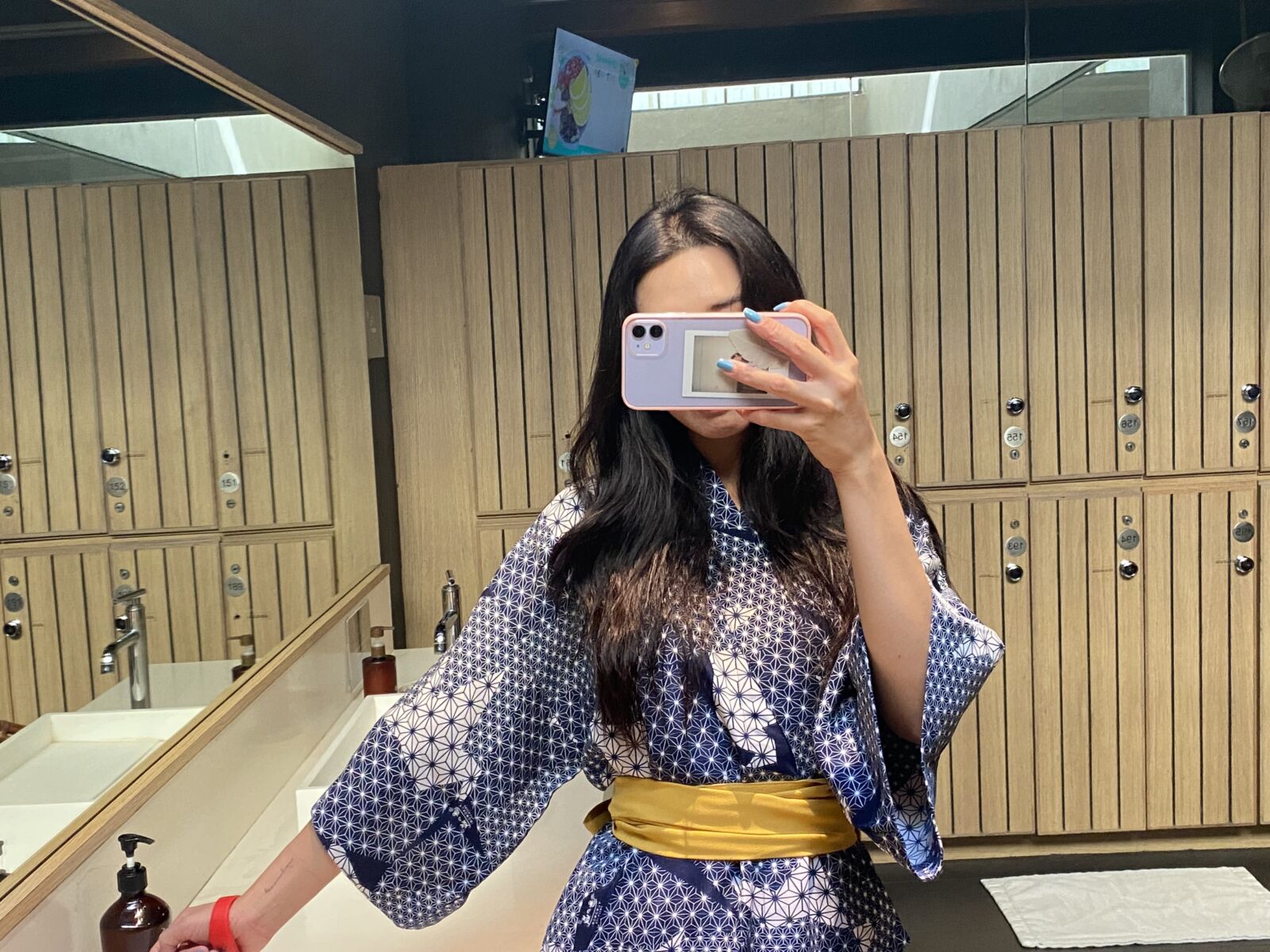
Onsen experience at Yunomori Onsen
One of the things you’ll have to learn before joining the communal bath is the Japanese onsen etiquette, which includes joining in naked. For privacy, the baths are gender-separated. Ladies, if the idea of going to au naturel has you blinking twice, you can wear light, reusable underwear provided by Yunomori.
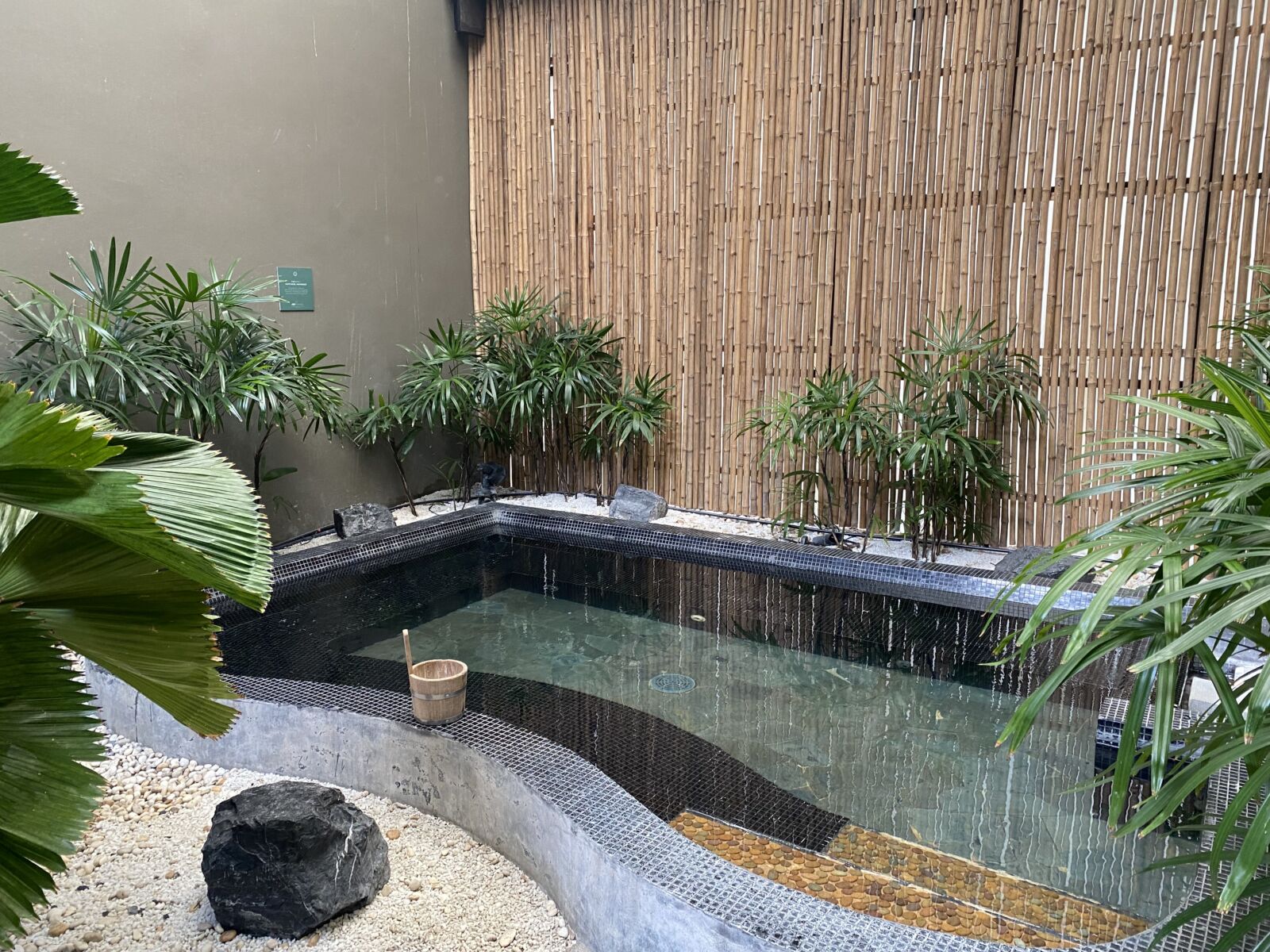
From the tea-scented Yunomori Signature Bath to the powerful Jet Bath, each bath offers different health benefits for your body and mind. Need help figuring out where to start? There is a helpful guide for your perfect onsen routine based on your specific needs, such as better sleep, muscle recovery, ultimate relaxation, skin rejuvenation, and even burning calories.
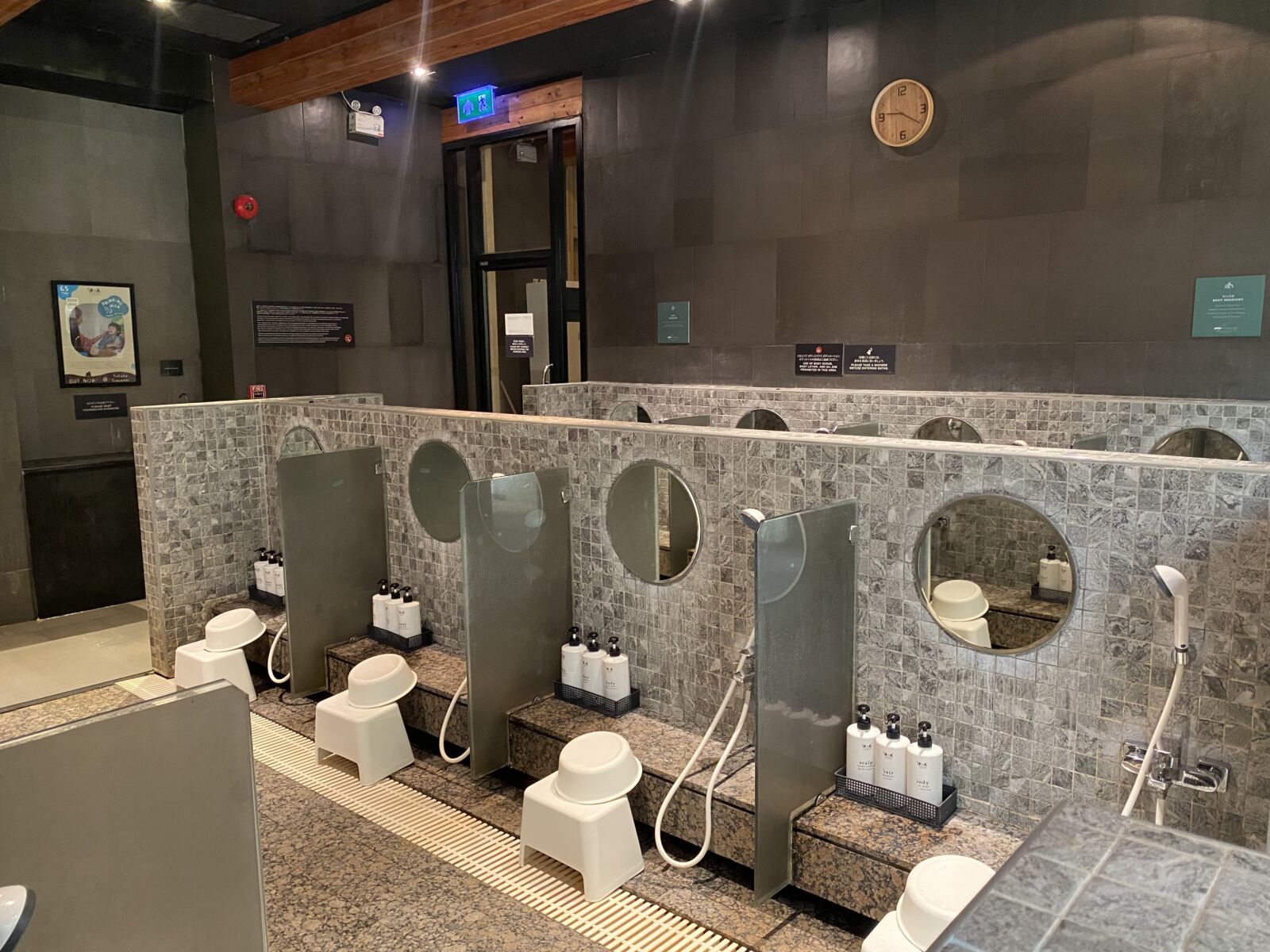
Experiencing the Office Syndrome Massage
After soaking in the onsen, a perfect follow-up is the Office Syndrome Massage, designed to alleviate the aches and stiffness associated with long desk work. This massage combines trigger point pressure and stretching to ease chronic muscle pain, improve flexibility, and boost blood flow, helping counter office syndrome. Fragrant orange oil also adds a layer of relaxation to the experience.
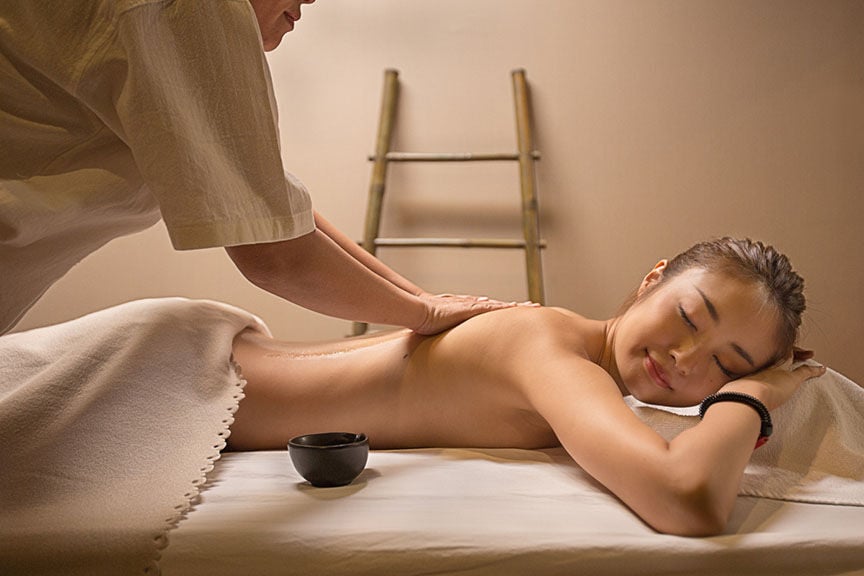
The combo treatment is highly recommended since the massage deepens relaxation and complements the thermal experience. Important note: you are not permitted to re-enter the onsen after the massage!
Enjoy lunch at Happy Rice
Following Japanese tradition, a must-do after your onsen experience is to drink milk. Happy Rice, Yunomori’s Japanese restaurant, serves Hokkaido milk in different flavours. Hokkaido milk is not your average milk; you’ll be caught off guard by its creamy richness.
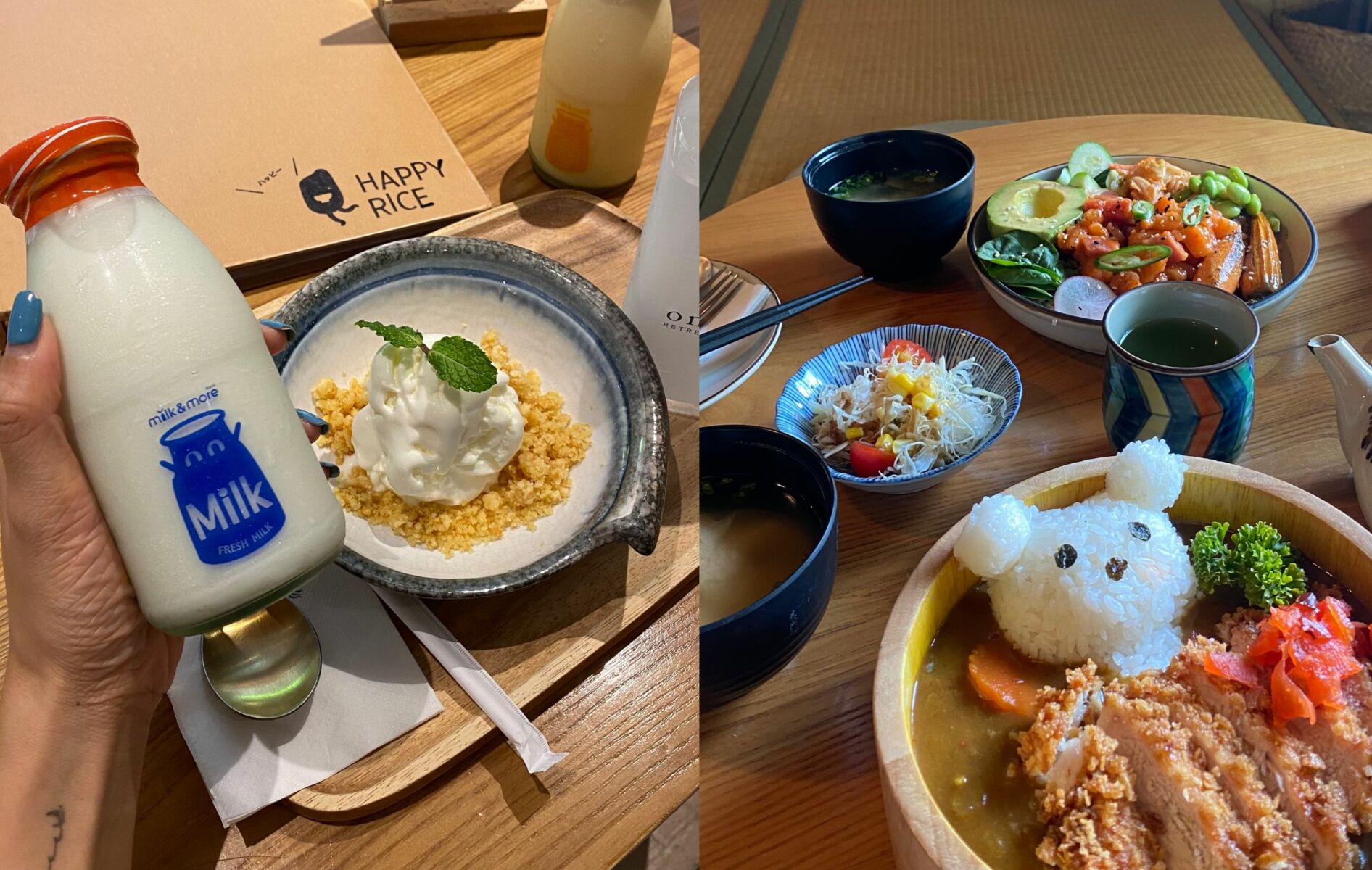
Happy Rice’s menu features healthy and authentic Japanese cuisine. A standout dish is the cute and delicious Japanese curry, playfully presented with a bear in an onsen, which pairs wonderfully with the recommended Hokkaido milk ice cream for dessert.
Overall experience
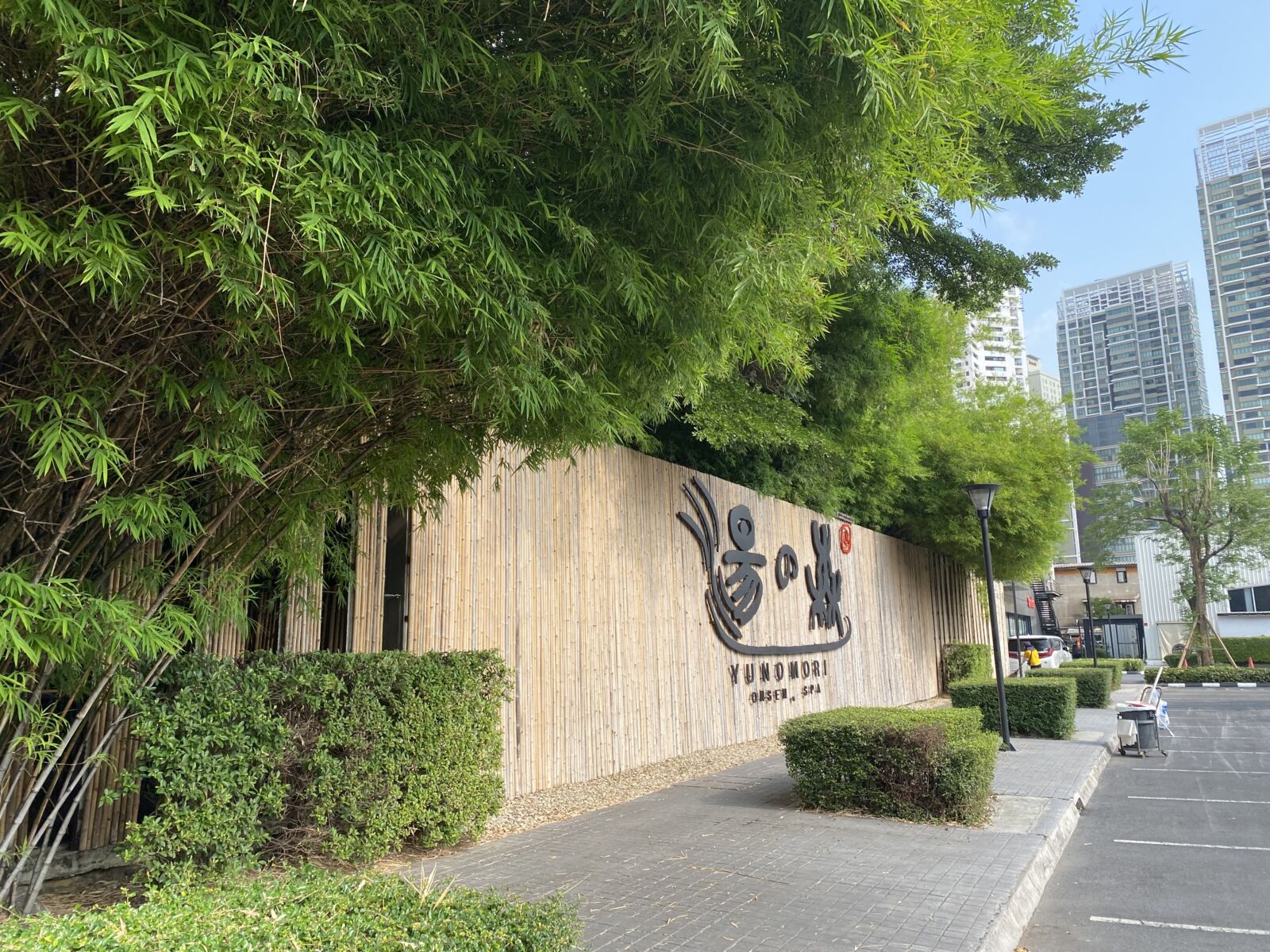
After spending a day at Yunomori Onsen, it’s clear that this place is more than just a spa. It blends the tradition of Japanese onsens with Thai massage, offering a complete wellness experience. From a relaxing mineral soak and a massage that eases muscle tension to tasty dishes at Happy Rice, Yunomori takes care of your well-being!
Review
Latest Thailand News
Follow The Thaiger on Google News:


























